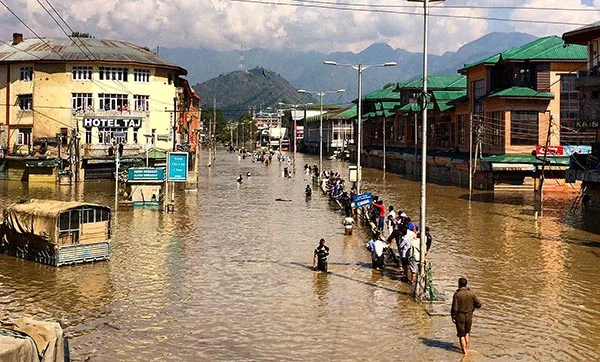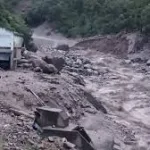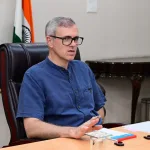As Kashmir Valley revisited memories of the devastating 2014 floods following incessant rains between August 1 and 3, the rising water levels and flood panic have triggered a surge in mental health distress, especially among survivors of the previous disaster.
Doctors at the Institute of Mental Health and Neurosciences (IMHANS) Srinagar have reported a noticeable spike in patients experiencing post-traumatic stress disorder (PTSD), anxiety, and panic attacks, many of whom had earlier recovered through treatment after the 2014 deluge.
“Many patients who survived the 2014 floods and were diagnosed with PTSD are now reliving those traumatic experiences. Even those who had been stable and off medication are now showing renewed symptoms of distress,” said ,Dr Aijaz Suhaf, Assistant Professor at IMHANS, Srinagar.
He noted that patients are reporting sleep disturbances, irritability, and a resurgence of depression, panic disorders, and PTSD symptoms, adding that the ongoing rains have become a trigger for many.
Shazia, a resident of Jawahar Nagar who lost her home in the 2014 floods, said she hasn’t slept properly in days. “Every time the water rises, I feel like I’m back in that nightmare. I still remember clinging to my children as the floodwaters entered our house. That memory never left me,” she said.
Ghulam Qadir, a retired government employee from Bemina, said the fear of history repeating itself has resurfaced his depression. “When I hear news of rising water, my chest tightens, and I can’t sleep. It feels like we’re about to go through the same trauma again,” he said.
In Rajbagh, Fatima, a mother of four, said even small showers send her children into a state of panic.
“They start crying the moment it begins to rain. Every night, I pray the water doesn’t rise. It feels like we are trapped in a recurring nightmare.”
Saeed, a shopkeeper in Frestbal, Pampore, echoed similar fears. “Low-lying areas here get flooded quickly. Every drop of rain makes me anxious. I can’t focus on work—I’m always checking for rising water.”
Bilal Ahmad, a university student from Bemina, said the psychological impact has disrupted his academics. “I can’t study when it rains. My mind goes blank. It’s as if my future is sinking before it starts,” he said.
Doctors say the problem is compounded when patients cannot access their regular medication or attend follow-up appointments. “Families also suffer extreme anxiety when life-saving medicines for their loved ones are unavailable,” Dr Suhaf said.
Adding to the distress is the misuse of social media. “Instead of providing reliable updates, alarming visuals and exaggerated content are circulating online. These only intensify fear and helplessness among people already on edge,” Dr Suhaf cautioned.
Meanwhile, the Tele Manas helpline run by IMHANS has seen a surge in distress calls in recent days, as panic-stricken residents seek counselling to cope with the fear of floods. “In the last 48 hours alone, dozens of callers complained of panic attacks and fear triggered by incessant rainfall,” said a doctor, managing the service.






